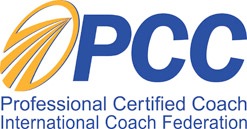AdultLeader
“Here We Go Again”…OR…”I Get To Go Again!!!” A Leadership Choice.
“Here we go again”…OR…”I get to go again!!!” Which one feels better? I received the “here we go again” from a client as a reaction to my wishing them a great 2014. It got me thinking about how our initial reaction offers us an opportunity to examine the expectations and assumptions we hold about our future day, week, year, meeting, etc… Without realizing it, expectations and assumptions are running in the background. They have an effect on how we feel right now and how we approach what is next – 2014 in this case. If unexamined and not challenged when they fail to create positive anticipation, we risk not bringing our best selves or AdultLeader to our future. An eye roll or a grimace usually accompanies “here we go again” and indicates that we’re not really looking forward to what is next. We are letting the inertia of previous experience create or reinforce expectations and assumptions about our future. This may be exacerbated by our brain’s tendency to focus more on the negatives, and to forget the positives. According to Dr. Rick Hanson, a neuropsychologist and author of the book Hardwiring Happiness: The New Brain Science of Contentment, Calm, and Confidence, our brains are incentivized toward seeing the negative. I know I would rather approach 2014 and every day, week and meeting with the feeling of “I get to go again!!!” And I don’t always at the first pass. According to Dr. Hanson, deliberately looking for the positive just kind of levels the playing field. A feeling of positive anticipation or excitement helps us bring our best to what is next with an energy and attitude that is more likely to help make our goals and dreams happen. It’s a choice to expect that a positive outcome is possible. When we make this choice, we feel more powerful and in charge. We eliminate the feeling of powerlessness that goes along with the inertia of those unexamined expectations and assumptions. We no longer have to walk around unwittingly thinking we will repeat the past It takes vigilance for me to choose to expect, assume, and think in ways that create excitement and positive anticipation for what’s next. I have to work at it, and it isn’t always easy. It takes practice. We can choose to be mindful of our expectations and assumptions and to create a new vision or narrative for 2014, tomorrow, next week, or our next meeting. As leaders we need to create a narrative that makes sense of the challenges and negatives we face, includes what has worked in the past, anticipates the opportunities before us, and recognizes that the past does not have to repeat itself. We can write and speak a future that inspires, so that we all “can’t wait to go again” with you. What’s your vision or narrative for your 2014? for tomorrow, for next week or for your next meeting? Does it excite and fill you and your people with positive anticipation about what is next? Is it the future you want to create for you? for your organization? Take a moment and send your comments and questions. If you were reminded of something, learned something, or questioned something, taking a moment to write it down will ground your observation and may inspire some future action. WANT TO USE THIS ARTICLE IN YOUR E-ZINE, BLOG, OR WEB SITE? You can, as long as you include this complete statement at the end of the article: © 2014 Stephen Carr Associates, Inc. Stephen Carr is a successful, Boston-based Executive Leadership Coach. He can be found at www.stephencarrexecutivecoach.com AND...
Read MoreUse Frustration to Challenge Yourself as a Leader
Experiencing frustration is common to all of us. Frustration is an emotion. It is also internal feedback that alerts us to the opportunity for change. I hear about the frustration my clients experience in their workplace on a regular basis – my direct reports are not doing what they need to, my organization isn’t changing to support my idea, my boss is not providing the kind of leadership we need, and the list goes on. I’m sure you can add to it. Frustration is an emotion. Human beings experience this emotion. In fact, it is unavoidable, so let’s let it be OK and then move on to use it. Frustration is internal feedback from you to you. It is you alerting you to the opportunity to think about the current situation in a new way that is more congruent with your AdultLeader. If you allow yourself to think about the situation in a new way, then you open the possibility for new ideas about how to handle it in a new way. What new behavior or action can you use to potentially accomplish a different result; one that might ease your frustration, one that might allow you to know that you have given your best effort, one that might actually move you closer to the result you want? Frustration can be welcomed as an opportunity to Close The Leadership Gap. This is the gap between where you are experiencing frustration because of your beliefs, perceptions, habits, expectations, and assumptions (what you think is right and true) AND your leadership potential (which is limitless and full of possibilities). When you are willing to leverage your unique strengths, skills, and experiences with self-knowledge, purpose and commitment, it becomes possible to take a shot at a different approach to the current frustrating situation. It feels good to be the AdultLeader when you choose to act instead of being a victim to the situation. The positive emotion you experience is also internal feedback from you to you. You experience it when you chose to Close the Leadership Gap by acting on your leadership potential. What is a current frustrating situation you want to have an impact on? Frustrating situations will continue to show up for you. You get to choose if you are willing to welcome the challenge. You can be the victim or you can act. It can seem easier to make it necessary for the others or the situation to change. It’s not. It is just frustrating. When you look at it this way, you don’t really have a choice. Please feel free to send your comments and...
Read MoreAn Understanding of Implicit Memory Has Real Implications for Self-Awareness in Leaders
Implicit memory is a type of memory in which previous experiences aid in the performance of a task without conscious awareness of these previous experiences. Schacter, D. L. (1987). Journal of Experimental Psychology: Learning, Memory, and Cognition, 13, 501-518. . We have all reacted unreasonably or unproductively and seen others do the same. An understanding of implicit memory has real implications for self-awareness in leaders. This understanding can help us manage our own behavior and help us avoid being sucked into reacting to someone else’s unreasonable behavior. “What’s crucial to understand about implicit memory — especially when it comes to our kids and their fears and frustrations–is that implicit memories cause us to form expectations about the way the world works, based on our previous experiences. Because neurons that fire together wire together, we create mental models based on what’s gone on in the past. This is because implicit memory creates something called “priming” in which the brain readies itself to respond in a certain way.” From Dr. Dan Siegel and Tina Payne Bryson, Ph.D., The Whole-Brain Child Our brain is designed to react based on previous and repeated experiences. We form mental models for making sense of the world based on implicit memory. We recognize these mental models as our beliefs, perceptions, habits, expectations, and assumptions. Implicit memory helps us run on automatic pilot and to react without thought. Sometimes this is great, like in an emergency, or when we are running late for work. Sometimes it is not so great, like when we find ourselves reacting unreasonably or unproductively (again). To develop as leaders, we need to increase our conscious awareness of the existence of the mental models we created from implicit memory so we can evaluate their effectiveness. Or just to realize they exist and are likely not helpful in the present moment. Rather than react, we want to be better able to consciously choose to respond in order to get the results we want and be the leader and/or parent we want to be. This is about training our minds through our awareness to intervene and interrupt the reactions led by our brains. In my executive coaching, I use the Results Accelerator™ to help my clients expand awareness of their mental models, or systems (beliefs, perceptions, habits, expectations, and assumption), so they can more consciously and effectively choose how they will respond and lead. Leadership is not a position. It is the expression of our best and most capable selves. Leadership is a choice. My best to you. Please feel free to send your comments and...
Read More







